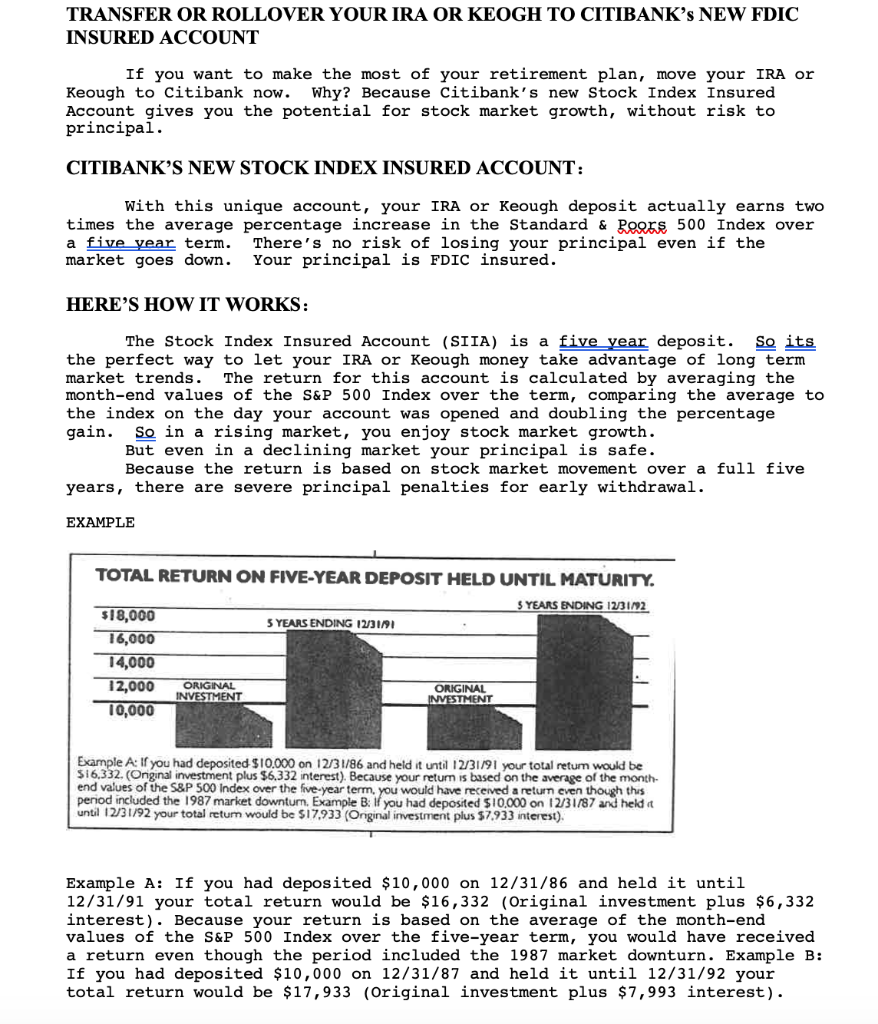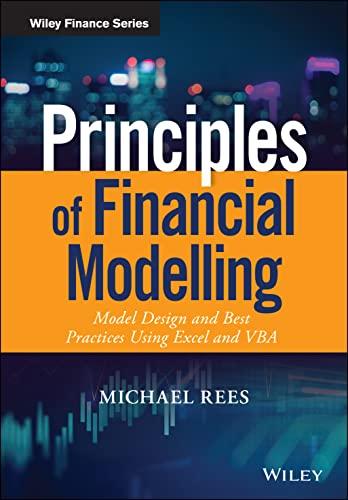Answered step by step
Verified Expert Solution
Question
1 Approved Answer
From the article above discuss the difference the option that truly underlies the CD and the simplified version of the option that I you have

From the article above discuss the difference the option that truly underlies the CD and the simplified version of the option that I you have analyzed
TRANSFER OR ROLLOVER YOUR IRA OR KEOGH TO CITIBANK's NEW FDIC INSURED ACCOUNT If you want to make the most of your retirement plan, move your IRA or Keough to Citibank now. Why? Because Citibank's new Stock Index Insured Account gives you the potential for stock market growth, without risk to principal. CITIBANK'S NEW STOCK INDEX INSURED ACCOUNT: With this unique account, your IRA or Keough deposit actually earns two times the average percentage increase in the Standard & Poors 500 Index over a five_year term. There's no risk of losing your principal even if the market goes down. Your principal is FDIC insured. HERE'S HOW IT WORKS: The Stock Index Insured Account (SIIA) is a five year deposit. So its the perfect way to let your IRA or Keough money take advantage of long term market trends. The return for this account is calculated by averaging the month-end values of the S&P 500 Index over the term, comparing the average to the index on the day your account was opened and doubling the percentage gain. So in a rising market, you enjoy stock market growth. But even in a declining market your principal is safe. Because the return is based on stock market movement over a full five years, there are severe principal penalties for early withdrawal. EXAMPLE TOTAL RETURN ON FIVE-YEAR DEPOSIT HELD UNTIL MATURITY. 5 YEARS ENDING 12/31/92 $18,000 5 YEARS ENDING 12/3111 16,000 14,000 12,000 ORIGINAL ORIGINAL INVESTMENT INVESTMENT 10,000 Example A: If you had deposited $10,000 on 12/31/86 and held it until 12/31/91 your total retum would be $16.332. (Onginal investment plus $6.332 interest). Because your return is based on the average of the month- end values of the S&P 500 Index over the five-year term, you would have received a return even though this period included the 1987 market downtum. Example B: If you had deposited $10,000 on 12/31/87 and heldt until 12/31/92 your total retum would be $17.933 (Orginal investment plus 37.933 interest). Example A: If you had deposited $10,000 on 12/31/86 and held it until 12/31/91 your total return would be $16,332 (Original investment plus $6,332 interest). Because your return is based on the average of the month-end values of the S&P 500 Index over the five-year term, you would have received a return even though the period included the 1987 market downturn. Example B: If you had deposited $10,000 on 12/31/87 and held it until 12/31/92 your total return would be $17,933 (Original investment plus $7,993 interest)Step by Step Solution
There are 3 Steps involved in it
Step: 1

Get Instant Access to Expert-Tailored Solutions
See step-by-step solutions with expert insights and AI powered tools for academic success
Step: 2

Step: 3

Ace Your Homework with AI
Get the answers you need in no time with our AI-driven, step-by-step assistance
Get Started


